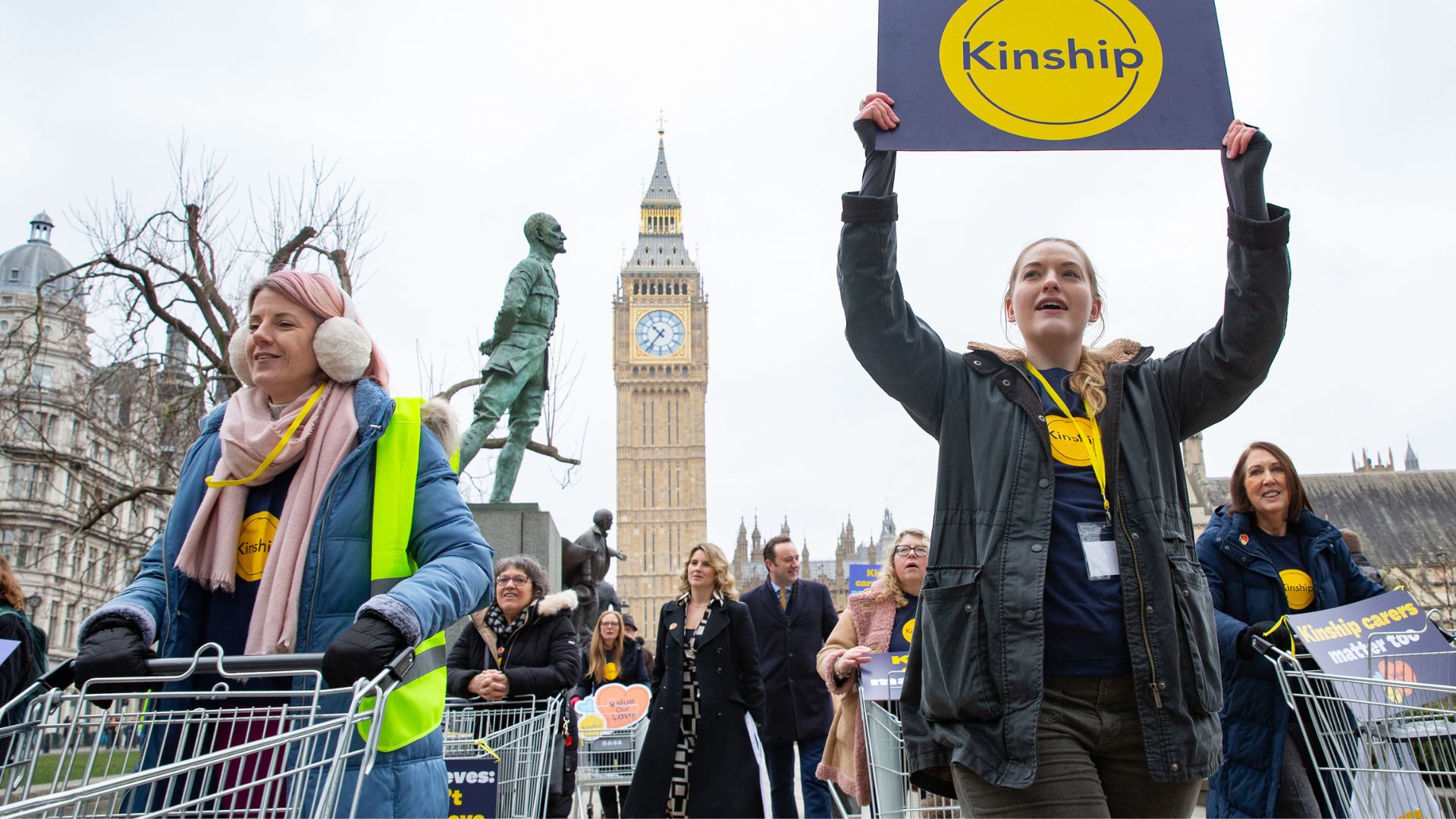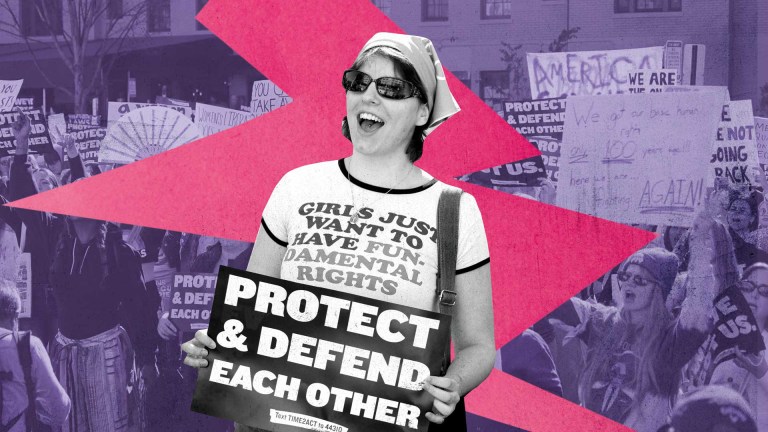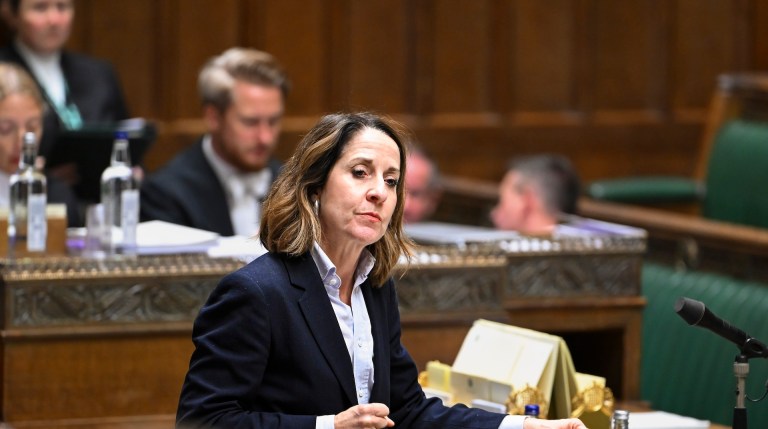“We had 24 hours to make a life-changing decision – with barely any information about what had happened to Craig or why he was even in care.”
Sarah explained that she reached out to her local MP to “get us housed appropriately” because she and Matt were sharing a room with Craig. She added that it “wasn’t until our case was transferred to a new local authority that things started to change for us”, with the couple going on to find the charity Kinship, who helped them access support.
With many in Sarah’s position struggling to make ends meet, more than 50 kinship carers staged a march in Westminster on Wednesday (12 February) to call for the government to provide vital financial support for families.
The protesters pushed empty shopping trolleys with a giant “shopping list” of the essential things that the average kinship family has to pay for each month, such as food, clothing and heating, to be delivered to the Treasury.
The protest comes as new research from Kinship in partnership with the Centre for Care has revealed that carers like Sarah and Matt contribute £4.3bn to the economy, with more than 130,000 children currently being looked after by kinship carers in England.
Without financial support, however, kinship carers are twice as likely as other adults to rely on food banks and four times as likely to fall behind on their bills, the research found.
Advertising helps fund Big Issue’s mission to end poverty
‘I have never had a penny of financial support’ as a kinship carer
Carmen, a kinship carer in her 50s, has raised her grandson – now 13-years-old – since he was a baby, after his parents were unable to care for him. Without support, however, she has struggled with debt and keeping the house warm.
“I have never had a penny of financial support to help me raise my grandson,” she said. “It’s a postcode lottery, and neither the London borough I live in, nor the one that my grandson lived in before he came under my care have helped me. If I was a foster carer I would get a financial allowance that would ensure he has everything he needs.”
She continued: “I go without so that he can eat. For me, it’s often a case of: ‘Do I eat, or do I feed him and pay the bills?’
“I have had to give up my home to find somewhere even smaller. I have been in debt. We don’t put the heating on… I love him so much – he’s so funny and smart – and I would do anything for him. But love doesn’t pay the bills.”
Kinship called for chancellor Rachel Reeves to allot funding for kinship carers in England as part of this year’s government spending review. It explained that the government has committed to trialling a new kinship allowance in up to 10 local authorities, but it wants to see these plans expanded, and a commitment made to “guarantee financial allowances for all kinship families across the country”.
Dr Lucy Peake, CEO of Kinship, said: “It is a disgrace that kinship carers are plunged into poverty; when other carers such as foster carers receive financial support, kinship carers are lying awake at night worrying about finding money to feed children they didn’t know they would be raising.
Advertising helps fund Big Issue’s mission to end poverty
“We need the government to stop dragging its heels and to recognise that kinship carers are struggling to make ends meet, risking thousands of children entering the already over-stretched care system. There’s an urgency here and the consequences of inaction are both heartbreaking for children and families and costly to the state.”
She added that the government “must deliver the urgent support needed by choosing to invest in kinship care as part of the forthcoming spending review to guarantee a financial allowance for every kinship family in England.”
Sarah explained that despite the challenges she has faced – describing the kinship system as feeling “unprepared, unclear, and at times extremely hostile” – being a kinship carer is “incredibly rewarding”.
“Witnessing Craig’s transformation from a child struggling with basic skills and emotional stability to a happy, articulate young boy has been nothing short of miraculous. His journey of growth and resilience inspires us every day,” she said.
“He’s seven now, and I’m proud to say he’s thriving – but getting to this point has been a battle we never anticipated.”
She explained that there are “thousands of families like mine who are struggling, feeling abandoned by a system that should be there to help”.
Advertising helps fund Big Issue’s mission to end poverty
“Kinship carers need financial support from day one. We can provide the love and stability for free but we need financial help to provide everything else a child needs. Foster carers get an allowance for exactly this. Why don’t we?”
*Names have been changed.
Do you have a story to tell or opinions to share about this? Get in touch and tell us more. Big Issue exists to give homeless and marginalised people the opportunity to earn an income. To support our work buy a copy of the magazine or get the app from the App Store or Google Play.










